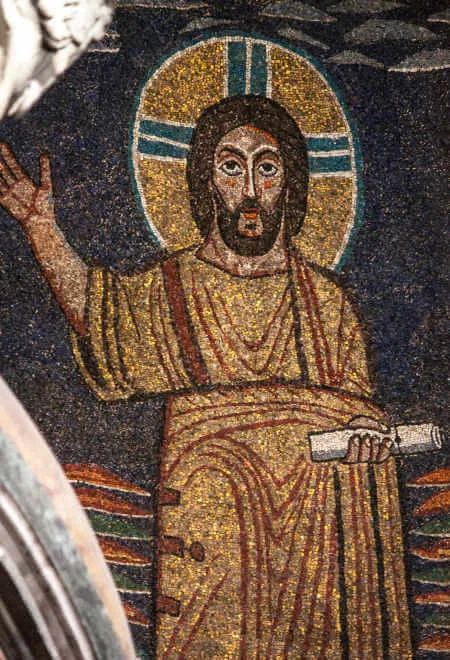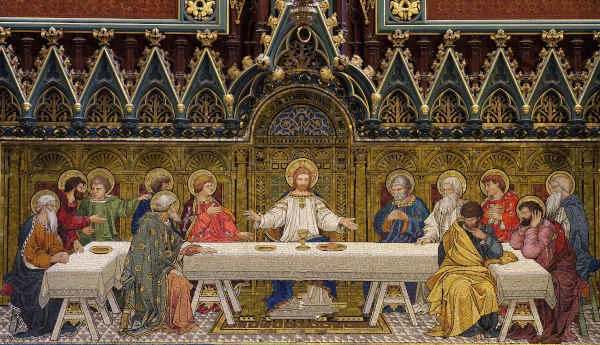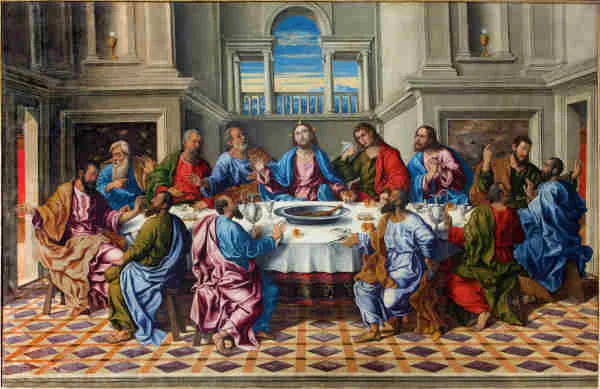John 15:26-27
Giving Testimony
Jesus said to his disciples: “When the Advocate comes whom I will send you from the Father, the Spirit of truth who proceeds from the Father, he will testify to me. And you also testify, because you have been with me from the beginning.”
Reflection:
Jesus informs His disciples that “the Spirit of truth” will come and that the Spirit, as well as the disciples, will “testify” to Him. When Jesus first spoke these words to His disciples, they would not have comprehended what He meant. Since these words are prophetic in nature, they are words spoken that were to come to fulfillment and, then, once fulfilled, the words would be understood. So what does Jesus mean?
When we look at the Acts of the Apostles and read about the early Church, it is clear that something incredibly transforming took place after Jesus ascended into Heaven. Up until that time, the disciples and other followers of Jesus had faith, but they were also fearful. They communicated with those others who believed, but did so in secret and with fear. But as soon as Pentecost came and the Holy Spirit, the Advocate, the Spirit of Truth, descended upon them, the Apostles began to be used by God to powerfully proclaim the Gospel without fear and with great effect upon many. It was this experience of the disciples of our Lord, being filled with the Holy Spirit, to which Jesus was referring.
After Jesus died, and perhaps even more so after Jesus ascended into Heaven, it is likely that some of His disciples immediately concluded that the new movement Jesus started was now over. They could have never conceived of the idea that what Jesus started was only beginning. They could have never conceived of the fact that soon they would share in the beginning of the Church, proclaim the Gospel with courage and power, see the conversion of countless lives, witness the ongoing forgiveness of sins, and ultimately give their lives in imitation of our Lord. These disciples had no idea just what awaited them with the coming of the Advocate, the Spirit of Truth. What was awaiting them was their sharing in the ability to “testify” to Jesus by the power of the Holy Spirit. They soon realized that Jesus was actually more alive than ever and that He was now going forth to convert souls by the power of the Holy Spirit and through the instrumentality of all of His new disciples.
The same is true in our lives today. It is far too common for Christians to simply believe in Jesus personally, but then fail to wholeheartedly give testimony to Him by the transforming power of the Holy Spirit. It is far too common for followers of Christ to act more like the disciples prior to the coming of the Holy Spirit. Too often, Christians keep the Gospel to themselves, fearful of giving testimony by the power of the Holy Spirit.
Reflect, today, upon these prophetic words of Jesus. Though these words were initially spoken to the Twelve, Jesus also speaks these words to you today. He wants you, too, to be a witness to Him, giving testimony to others so that they will come to believe. Reflect upon how well you fulfill this prophetic calling. Where you are lacking, pray for the outpouring of the Holy Spirit in your life so that God can reach many hearts through you.
Source: https://catholic-daily-reflections.com/2025/05/25/giving-testimony-4/













